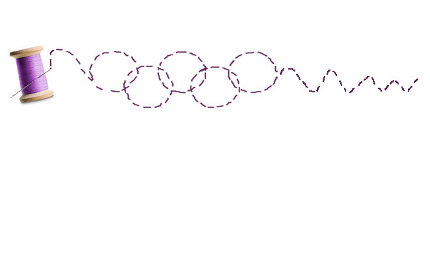
Abuses still exist in Olympic supply chains, says Playfair 2012
Workers making Olympic sportswear for London 2012 for top brands and high street names including Adidas and Next are being paid poverty wages, forced to work excessive overtime and threatened with instant dismissal if they complain about working conditions, according to a new report from the Playfair 2012 campaign published today.
Last autumn researchers working on behalf of Playfair 2012 (which includes the TUC and Labour Behind the Label and which is the UK arm of the international Play Fair campaign) visited ten factories – eight of which were producing Olympic goods – in China, the Philippines and Sri Lanka. Across the three countries they talked to 175 workers about their working conditions.
The report, Fair Games? Human rights of workers in Olympic 2012 supplier factories (you can find the report here (PDF)), uncovers a range of abuses, providing more evidence to increase the pressure on the International Olympic Committee (IOC) to act to improve the working conditions in Olympic supply chains in the run up to Rio 2016, says Playfair 2012.
Fair Games? contains many examples where workers making Olympic goods have been badly treated including:
- In China workers at a factory in the Guangdong Province which produces sportswear for Adidas were contracted to work in two separate locations 200km apart so lived in fear of suddenly being sent miles from home for their jobs.
- Workers at the same Amerseas Enterprises Factory also complained of regularly having to do overtime in excess of the legal minimum (with working hours from 8am to 10pm not uncommon even at less busy times) and of not being able to wear the necessary safety masks to protect against dust because of unrealistic production targets.
- In the Philippines workers complained of pay rates so low that they were forced to pawn their ATM cards to loan sharks for ‘pay day loans’ to see them through the month. Workers in the factories producing for Adidas said they were also told when they started that overtime was compulsory.
- In Sri Lanka workers also said that their pay was not enough to meet their basic needs – those questioned said they earned a maximum of 25,000 LKR a month (£122), little more than half the country’s living wage of 45,000 LKR (£220).
- Workers at the Next Manufacturing factory in Sri Lanka reported how the company used an external agent to hire short-term temporary workers. The agent made the workers do double shifts each day – after completing a full shift plus overtime at Next they were transferred to another factory where they had to work until 2.30am. The next morning they had to report for their 8am shift at Next.
- There were no unions permitted in any of the factories and in China, workers said that anyone talking to colleagues about the need to improve factory conditions would be dismissed instantly.
- Following research undertaken by Playfair 2012 earlier this year – which found evidence of child labour, excessive hours, poverty pay and dangerous working conditions in Chinese factories producing pin badges and London 2012 mascots – the London Organising Committee of the Olympic Games and Paralympic Games (LOCOG) agreed to get tougher with the factories in its various supply chains.
This included making information about employment rights available in Chinese and establishing a Chinese language hotline so that workers could complain about ill treatment. Fair Games? shows that the abuse of workers in Olympic supply chains was also happening in other countries.
To illustrate the extent of the problem and to convince the IOC that it needs to do more to improve the treatment of workers making goods for the next Games in Brazil, the TUC has submitted a number of complaints to LOCOG on behalf of the workers from China and the Philippines who are featured in the report.
TUC General Secretary Brendan Barber said: “Despite the London organisers’ best intentions and its confidence that factory audits would be enough to expose any abuses, this report shows that there have been goods made in Olympic supply chains where the workers were treated in a way that cannot be described as ethical."
“We hope that the IOC can benefit from LOCOG’s experience and ensure that the lessons learned in 2012 lead to better and fairer working conditions for those producing sportswear or merchandise in the run up to Rio 2016. There is much too in this report for sportswear brands and our high street chains to take on board.”
Klaus Priegnitz, General Secretary of the International Textile, Garment and Leather Workers’ Federation (ITGLWF), which wrote the report, said: “Prior to the Beijing Olympics Play Fair called on companies to take action to ensure the human rights of all workers in their supply chains were respected."
“Four years on we see that the denial of the right to freedom of association, the payment of poverty wages and the widespread use of precarious work is still the norm. Companies need to step up their game and work with unions to support the development of mature systems of industrial relations in their supplier factories.”
Sharan Burrow, International Trade Union Confederation General Secretary (ITUC) said: “We need the IOC to take responsibility and make labour rights and decent work a reality for all workers producing for any Olympic Games.”
Anna McMullen, co-ordinator of the garment workers' rights campaign Labour Behind the Label, said: “In an industry where exploitation is the norm, brands, like the IOC or Olympic sponsor Adidas, must take action in order to break the cycle of human rights abuse. If they just stand by and watch, reports like this will keep occurring. Now is the time to make a difference.”
For more info, go to http://www.playfair2012.org.uk/what-you-can-do/fair-games/